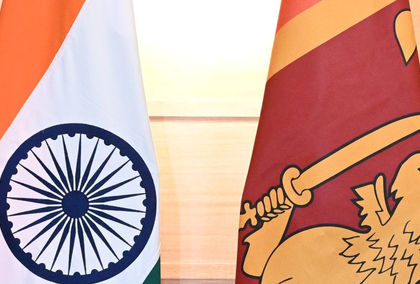Radicalisation in Sri Lanka: A brewing storm with implications for India
By IANS | Updated: August 27, 2025 20:05 IST2025-08-27T20:02:26+5:302025-08-27T20:05:07+5:30
New Delhi, Aug 27 On April 21 2019, in Sri Lanka, a series of bombs went off at ...

Radicalisation in Sri Lanka: A brewing storm with implications for India
New Delhi, Aug 27 On April 21 2019, in Sri Lanka, a series of bombs went off at four hotels and three Churches in which 269 people were killed. The bombings were carried out by terrorists inspired by the ideology of the Islamic State.
The bombings showed how deeply radicalised a section of the society in Sri Lanka is. Further, any such activity in Sri Lanka has a direct bearing on India. Investigations found that the bombings referred to as Easter Bombings were masterminded by Bahrain Hashim.
When the police investigated the Coimbatore blasts case, it was found that Hashim was in touch with those involved in the incident. He had even visited Tamil Nadu several times and did long stints where he carried out radicalisation missions.
Radicalisation and terrorism are not new in Sri Lanka. When Al-Qaeda carried out the 9/11 attacks, the Salafi Wahhabi Muslims in Sri Lanka rejoiced at the fall of the Twin Towers and the deaths of people. The same people celebrated when the Buddha statues of Bamiyan were destroyed by the Taliban in Afghanistan.
After the Islamic State was announced by Abu Bakr al-Baghdadi, 42 Sri Lankans left for Syria and Iraq to join the outfit. The leader of the Jamaat-e-Islami’s student wing, Sadiq Abdul Haq, had also travelled to Syria, where he received training.
Upon his return, he teamed up with Hashim and vandalised images of Buddha, Mother Mary and Ganesh.
Now, a new worry has emerged in Sri Lanka, and this is not just a headache for the island nation, but for India as well. Protests have broken out against Israel and in support of Hamas.
Since the events of October 9 2023, there have been over 20 pro-Palestinian protests. People have come out with placards reading, ‘Stop the Genocide and Stop Israel Terrorism.’
Many of these protests have been organised by the Dawatagaha Jumma Masjid, Colombo. There have been marches in solidarity with the people of Palestine. In many parts of the world, there have been calls to kill pro-Israelis, and the authorities worry that this could spill over into the streets of Sri Lanka as well.
Such protests and calls are usually spearheaded by the Muslim Brotherhood and Hamas. The movements organised have managed to radicalise a lot of people against Israel. The worry is that the channels that Hamas has opened up worldwide, through which it radicalises people. The bigger worry is that Hamas does not expect peaceful protests. It seeks blood, and there could be many who may get carried away and carry out violence.
Given the history in Sri Lanka and a section of people that can get easily swayed, the current situation is worrisome.
The authorities in India, too, have plenty to worry about owing to this situation. The National Investigation Agency, in a response to a court in Ernakulam, had said that the accused in the Coimbatore blast were in touch with Hashim. It was also found that Hashim had visited India in 2017 and had radicalised a large number of youth, especially in Tamil Nadu. Hashim was also instrumental in radicalising the youth into launching attacks against Hindu leaders in South India.
Given this history between modules in South India and Sri Lanka, the situation in the island nation is being closely monitored. India would not want a spill-over from its neighbouring country onto its soil.
Disclaimer: This post has been auto-published from an agency feed without any modifications to the text and has not been reviewed by an editor
Open in app